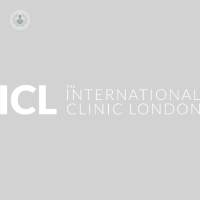Eating disorders
Dr James Greening - Paediatric endocrinology, diabetes & metabolism
Created on: 11-13-2012
Updated on: 08-02-2023
Edited by: Carlota Pano
What are eating disorders?
An eating disorder is when a person has a very unhealthy attitude to food, body weight, or shape. Eating disorders are serious illnesses that can prove fatal if not treated.
The most common types of eating disorders are:
- Anorexia nervosa: When a person tries to keep their body weight as low as possible by not eating enough or exercising excessively, or both.
- Bulimia: Characterised by periods of binging and then purging by either use of laxatives or by being deliberately sick.
- Binge eating disorder (BED): Loss of control over eating, consuming large portions all at once until you feel ill, and consumed by feelings of guilt.
Women are more likely to suffer from these types of disorders. They tend to occur in adolescence and are often accompanied by depression and anxiety disorders.

What symptoms do they present?
The common symptoms of eating disorders are:
- excessive exercise
- worrying a lot about your weight and body shape
- eating very little
- inducing vomiting after eating
- taking laxatives
- depression
- mood swings
- having strict routines around food
- avoiding social settings that could involve food
Additional physical signs include:
- a weight that is very low
- amenorrhoea (absence of menstruation)
- digestion problems
- fatigue
- feeling cold and dizzy
What causes eating disorders?
The exact causes of eating disorders are not known, however, some risk factors include:
- Having a family history of depression, substance abuse, and eating disorders.
- Having been criticised in the past for your weight or body shape.
- Being overly concerned about your weight, for example because of the nature of your work (e.g. being a model).
- Suffering from anxiety and having low self-esteem.
- Having been sexually abused.
Can eating disorders be prevented?
Prevention of eating disorders refers to any programs or interventions that reduce the risk factors of developing such a disorder. This includes primary and secondary prevention. Primary prevention aims to prevent the onset of an eating disorder, whilst secondary prevention tries to reduce the severity and duration of an eating disorder in a person who has already been diagnosed.
What is the treatment for eating disorders?
Treatment may differ slightly between each case and each type of eating disorder. Recovering from an eating disorder is entirely possible, but recovery can take a while and it will be a different experience for each person.
Physically, treatment will aim to increase nutritional intake, stop purging, and reduce excessive exercise. Together, these will allow a person to reach a healthier weight.
Further to this, treatment will involve individual, group and family psychotherapy sessions (e.g. cognitive behavioural therapy, known as CBT), nutritional counselling, medical monitoring, and medication. Medications that may be given include anti-depressants, but medication must not be the only form of treatment for eating disorders, and may not be given to patients under the age of 18.











